Architecture Lighting Environments:
Space with(out) Light
At LS2023, an international committee consisting of representatives from six different universities will present a program of talk and poster presentations from researchers and practitioners worldwide. We’d like you to be among them. Submit proposals for papers and posters to be presented during our program of discussions, workshops, exhibitions, and social activities.
Daylight and electric light are an integral part of our built environment, and the sustainable design of lighting in this context, its presence, absence, and variability over time, requires research and practice that is both trans- and interdisciplinary.
Although the presence of light is intimately linked to the life of humans, flora, and fauna, research and practice have not yet fully explored how light and dark can shape the built environment in a sustainable and holistic way.
Research and practice into the affects and effects of light combine lighting design with other fields, including, for example, architecture, engineering, computer science, visualization, arts, humanities, social sciences, environmental psychology, health sciences, cognitive sciences, and more.
In this context, the 9th Light Symposium, LS2023, will be held in Stockholm and hosted by the Architectural Lighting Design Division of KTH – the Royal Institute of Technology, in collaboration with the Perception Studio of Konstfack University of Arts, Crafts, and Design.
The overall intent is to share and learn about current research and design across wide-ranging fields related to architectural and urban lighting. We look forward to receiving your proposals. Check the Submission and Important Dates pages for more information.
The conference topics include daylight and electric light in architecture, art, and urban design, and can include but are not limited to your interpretations on:
- Variability and Rhythmicity
- Designing for Darkness
- Sensory and Spatial Perceptions
- Light and Health for all Species
